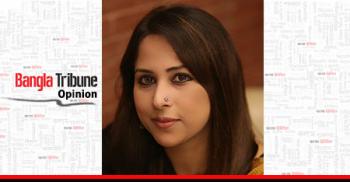 Rina (not her real name), a 34-year-old woman came with a complaint: she was allegedly abused and tortured by her husband. Her husband was diagnosed with severe psychotic disorders a few years back. The expert pronounced it as schizophrenia. She never really talked about his mental health with anyone. Maybe she was embarrassed about what people may think of her husband. There were many factors the society don’t understand either. Some get annoyed: ‘How can you be sad, what do you have to be sad about, you have a smooth life, etc ‘. Rina was finding it hard to deal with him and had no clue as to how to cope with the situation. She was not sure how to deal with him without becoming frustrated.
Rina (not her real name), a 34-year-old woman came with a complaint: she was allegedly abused and tortured by her husband. Her husband was diagnosed with severe psychotic disorders a few years back. The expert pronounced it as schizophrenia. She never really talked about his mental health with anyone. Maybe she was embarrassed about what people may think of her husband. There were many factors the society don’t understand either. Some get annoyed: ‘How can you be sad, what do you have to be sad about, you have a smooth life, etc ‘. Rina was finding it hard to deal with him and had no clue as to how to cope with the situation. She was not sure how to deal with him without becoming frustrated.
Sometimes her husband was sad, sometimes violent. But he was so happy at times! Her husband’s illness made her feel irritable, hopeless and frustrated. She lost interest in things they used to enjoy together. She isolated herself from family and friends. Aggression, violence, unpredictable mood swings, and incapacity to fulfil familial and occupational duties caused serious difficulties in her life.
Mutual affection, mercy, compassion, tranquillity and love between husband and wife are necessary conditions for a happy marriage. Our religion insists that breach of the marriage contract should be avoided.
No matrimonial contract is intended for dissolution but unfortunately, on some occasions, it gets broken is broken as it becomes a necessity. One of the ways of such dissolution is divorce. Under Muslim law, the divorce may take place by the act of the parties themselves or by a decree of the court of law.
The wife can file a suit under the Muslim Family Law Ordinance 1961 for dower money and maintenance for herself and for the children living with her in a family court which is called a civil suit. Section 7 of the ordinance provides the grounds on which a divorce suit can be filed. The Divorce Act, 1869 contains the dissolution of marriage in chapter III, nullity of marriage in chapter IV and judicial separation in chapter V.
A woman married under Muslim law shall be entitled to obtain a decree for divorce for the dissolution of her marriage on any one or more of the following grounds, namely:-
• That the husband has neglected or has failed to provide for wife’s maintenance for a period of two years. It is a legal obligation of a husband to provide maintenance to his wife. If the husband fails to do so, the wife may seek dissolution of marriage on this ground. The husband’s obligation to maintain his wife is subject to wife’s own performance of matrimonial obligations under Muslim laws. Therefore, if the wife lives in a separate place without any reasonable ground, she is not entitled to get a judicial divorce on the ground of the husband’s failure to maintain her.
• If the husband has been insane for a period of two years or is suffering from leprosy or a virulent venereal disease the wife can seek judicial divorce provided that the husband’s insanity is for two or more years immediately preceding the presentation of the divorce suit.
• If the husband has fails to perform, without reasonable cause, his marital obligations for a period of three years the wife can seek a divorce order. However, the Act does define ‘marital obligations of the husband’. There are several marital obligations of the husband under Muslim law.
When a married couple is unable to carry on their union with mutual affection and love with or without any specific cause or guilt, then it is better to allow them to get separated rather than compelling them to live together in an atmosphere of hatred and dissatisfaction. If cohabitation becomes painful and all the more desirable alternatives become impossible then nullity of marriage should be adopted as a last resort.
The writer is a Barrister-at-Law of the Honorable Society of Lincoln’s Inn, UK and an advocate of the Supreme Court of Bangladesh.


